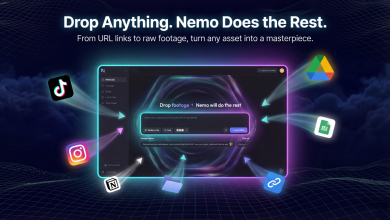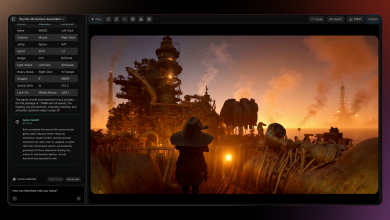
Artificial Intelligence isn’t a buzzword anymore—it’s a business weapon.
At National Technology Management (NTM), we’re already seeing AI 10x our operational output without 10x the workload. It’s not hypothetical. It’s happening right now. AI is giving us back our most valuable asset—time—and in business, time equals opportunity.
Operational Efficiency Is the Great Equalizer
I’ve built companies long before AI was mainstream, back when every improvement came from pure human grit, long nights, and relentless accountability. But today, we’re watching an evolution that rivals the Industrial Revolution. The difference? This one’s not powered by steam—it’s powered by data, automation, and machine learning that works 24/7.
The truth is simple: AI is the ultimate force multiplier for operational efficiency.
The organizations that learn to integrate AI into every system—sales, service, cybersecurity, finance, HR—will dominate. Those that hesitate will drown in the wake of faster, smarter competitors.
At NTM, we use AI not to replace people but to enhance them. We’ve automated ticket triage, accelerated service responses, and even used AI to identify vulnerabilities before they become security incidents. What used to take hours or days now happens in minutes.
That efficiency compounds, freeing our people to focus on strategy, leadership, and creative problem-solving—the human skills AI can’t replicate.
Don’t Balance It—Dive In
There’s a dangerous myth floating around that leaders should “balance” AI with human input.
I disagree completely.
Don’t balance it—dive in headfirst.
AI isn’t here to do your work for you. It’s here to make you exponentially better at doing your work. The leaders who embrace AI as an enhancement tool—not a crutch—will separate themselves from the pack faster than any generation before them.
I often compare it to physical and mental fitness.
Working out, meditating, and journaling are all free, yet most people don’t do them. The same goes for AI. The tools are right there—ChatGPT, Copilot, machine learning analytics, predictive dashboards—but only a few will discipline themselves to learn and leverage them consistently.
Those few will thrive, while everyone else will spend the next decade wondering what happened.
We’re already using AI across cybersecurity platforms to detect anomalies before threats even hit. We’re using automation to compress deployment times. We’re building chatbots that solve client issues instantly, while our engineers focus on higher-value strategic projects. This isn’t science fiction—it’s process optimization in real time.
The leaders who resist automation because it’s uncomfortable are the same ones who once resisted cloud computing, mobile devices, or remote collaboration. They’re not cautious—they’re scared. But fear never built anything great. Adaptation did.
From Enterprise Power to Small-Business Possibility
Here’s what gets me fired up: AI is finally leveling the playing field.
For decades, massive enterprises had access to the kind of infrastructure, analytics, and manpower small businesses could only dream about. But AI has shattered that barrier. Today, a 25-person MSP or marketing firm can operate with the same insight, precision, and automation as a Fortune 500—if they’re willing to implement and learn.
That’s why I say there are no longer “haves” and “have-nots.” There are only adapters and late adopters. The tools are out there, but tools don’t build businesses—people do.
AI gives small and midsize companies the ability to punch far above their weight. You can predict customer churn before it happens. You can analyze financial health in seconds. You can automate entire onboarding systems that once required a full-time team. In cybersecurity, it means catching breaches in milliseconds instead of minutes. In leadership, it means real-time insight into performance, morale, and productivity.
The difference between success and extinction will come down to this: how fast leaders decide to get uncomfortable and learn.
The Human Edge Still Wins
AI might out-analyze us, but it can’t out-empathize us.
Automation doesn’t care about company culture. Chatbots don’t inspire loyalty.
That’s where human leadership still reigns.
The most effective companies will be those that marry AI’s precision with human connection—leaders who can interpret data, communicate with empathy, and make courageous calls when the algorithms can’t see the whole picture. That’s what I call Human Intelligence—and it’s the missing piece in most digital transformations.
Technology has always rewarded curiosity. The same discipline that builds muscles or mental strength will build technological mastery. The difference is that the window is shrinking. Those who wait will not just lose ground—they’ll become irrelevant.
The Future Belongs to the Relentlessly Curious
AI won’t steal your job—someone using AI will.
That’s the truth. It’s not meant to scare you. It’s meant to wake you up.
Every major disruption in history rewards the bold. When the internet emerged, most people ignored it. When social media exploded, most leaders dismissed it as a fad. Now AI is rewriting every rule again, and the cost of hesitation is extinction.
So here’s my challenge to every entrepreneur, executive, and professional reading this:
Stop waiting for perfection. Pick a tool. Experiment. Automate one process. Learn one new prompt. Replace one manual task with an intelligent system. Stack enough small wins, and you’ll transform your company without ever feeling overwhelmed.
In my world, excuses don’t get results—actions get results.
AI is giving us the chance to amplify what we already are. If you’re disciplined, it will magnify your discipline. If you’re lazy, it will magnify your chaos. The mirror doesn’t lie.
We are standing at the start of a new era where technology rewards integrity, speed, and curiosity.
You can watch it happen—or you can lead it.
The choice is yours.




